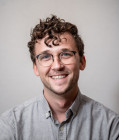Experts Available on 2021 Supreme Court Decisions: LGBTQ rights, voting, ACA, FBI Surveillance
This month, the United States Supreme Court will release decisions on a number of consequential cases. From LGBTQ rights in Fulton v. City of Philadelphia, to voting rights in Brnovich v. DNC and Arizona Republican Party v. DNC, to FBI surveillance of Muslim Americans in The Federal Bureau of Investigations v. Yassir Fazaga, and of course the future of the Affordable Care Act in California v. Texas and Texas v. California, these decisions could have major ramifications. For reporters covering these cases and their implications, the following experts are available to provide commentary and analysis.
Fulton v. City of Philadelphia

Asfari's areas of expertise are in public policy, criminal justice reform, prejudice and race, with an emphasis on Islamophobia. Asfari's ongoing scholarship seeks to understand the construction of Muslims as the “other,” and to identify the public policies that foster and legitimize this label.
Quote: “Islamophobia is neither new nor fundamentally different from other prejudices. It is a convergence of phobias and prejudices tied to long standing ignorance and the unyielding desire to control, subjugate, exploit, and cast as ‘other’ those with whom we think we share little in terms of belief, culture, custom, or race.”

Johnson is a historian, award-winning author, and a nationally recognized authority on LGBT history. He has appeared on CNN, PBS, and CBS Sunday Morning and his writing has appeared in the Washington Post, Huffington Post, and Foreign Policy. His first book was made into the award-winning documentary film “The Lavender Scare,” which aired nationwide on PBS.
Quote: “For decades, gay rights protections have been facing a barrage of attacks on the grounds of “religious freedom” from major Catholic institutions and small-town cake bakers alike. Fulton v. City of Philadelphia marks a major new chapter in this ongoing challenge to the scope and legitimacy LGBT rights in America.”
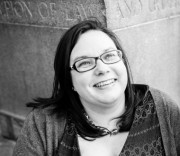
Mayo-Adam is the director of the LGBTQ Policy Center at the Roosevelt House. Her research is situated in the fields of American politics, law and society, and civil rights and liberties and bridges scholarship on interest groups and public policy, intersectionality, and gender and sexuality.
Quote: "Fulton v. City of Philadelphia is about whether government-funded agencies have the right under the Free Exercise Clause to discriminate based on sincerely held religious beliefs. The case concerns foster care services, but could extend to other public services provided by religious agencies as well, like housing and homelessness services. The outcome of the case will be especially felt by LGBTQ people who live in areas where non-discrimination laws require equal treatment.”
Brnovich v. DNC and Arizona Republican Party v. DNC

Merivaki is a member of the Carter Center's U.S. Elections Expert Study Team. She is one of the election experts in the Brnovich v. Democratic National Committee amicus brief.
Quote: "Placing limits on ballot collection in the absence of evidence of voter fraud can harm electoral communities who depend on this service to cast their vote. In every election, thousands of voters show up at the wrong precinct and are able to have their vote counted. These restrictions appear minor, but can have disparate effects on minority voters, and voters with inadequate access to resources."
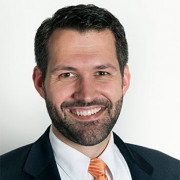
Spencer is professor of law and public policy at the University of Connecticut. He teaches and writes on minority voting rights and has served as an expert in federal Voting Rights Act cases.
Quote: “In Shelby County the Supreme Court assured us that the effects of its decision would not be particularly dire because similar protections against voting rights abuses were still covered by Section 2 of the Voting Rights Act. The Court is now poised to narrow the reach of Section 2. It is unlikely that the Court will invalidate the whole of Section 2, but it is almost certain that minority voting rights will be more difficult to enforce and protect in courts going forward."
California v. Texas and Texas v. California
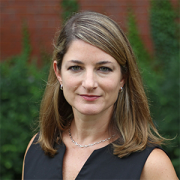
Huberfeld's research focuses on the cross-section of health law and constitutional law with emphasis on health care reform, the role of federalism in health care, and Medicaid. Huberfeld’s research was cited by the US Supreme Court in the first Affordable Care Act case, NFIB v. Sebelius.
Quote: “Congress clearly did not intend to strike down the entire ACA when it zeroed out the penalty for the individual mandate, and the Court seems tired of such frivolous legal arguments. Yet, the case has created confusion as to the continued existence of the ACA, which affects enrollment and access to care. It’s time to move forward with durable universal coverage.”

Field's research combines legal and public health perspectives to explore the relationship between the public and private sectors in health care. His primary focus is on health care regulation as a tool for policy change, both in the United States and in comparative perspective.
Quote: “The reasoning of the ACA challenge makes no sense. How can a mandate that was constitutional when it included an enforcement penalty become unconstitutional when the penalty has disappeared? For all practical purposes, there is no mandate. A ruling for the challengers would be illogical and could do tremendous damage to the entire health care system.”

Dr. Shin focuses on the study of community health systems and integration of care for vulnerable populations and is author of over 100 health policy reports and articles on community health centers, the health care safety net, medically underserved populations, health care financing, social determinants and health information technology.
Quote: "The ACA is melded into the health care DNA and it's impossible to see how one can undo or slice off program elements without causing damage not only to the 20 million who gained coverage but also the hundreds of millions with any kind of coverage. The law actually strengthens Medicaid and boosts resources to better meet its goal of ensuring access for low-income populations."
The Federal Bureau of Investigations v. Yassir Fazaga

Asfari's areas of expertise are in public policy, criminal justice reform, prejudice and race, with an emphasis on Islamophobia. Asfari's ongoing scholarship seeks to understand the construction of Muslims as the “other,” and to identify the public policies that foster and legitimize this label.
Quote: “Post 9/11 saw the use of controversial and counterproductive policing tactics employed against the Muslim American community. To mitigate terrorism and extremism, policing efforts should instead seek to build genuine trust with Muslim communities, and to do so through prolonged, positive, and evidence-based programs."
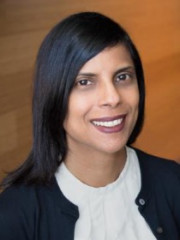
Selod’s research examines the Muslim experience in the years after 9/11. Specifically, she looks at American Muslims’ experiences with discrimination that are incurred upon them through their surveillance by the government through policies and upheld by private citizens.
Quote: "The Supreme Court will determine in The Federal Bureau of Investigations vs Yassir Fazaga, whether Muslims can sue the FBI for conducting surveillance of them based solely on their religion. This ruling calls into question whether section 1806(f) of the Foreign Intelligence Surveillance Act of 1978 displaces the states-secret evidence."
General Supreme Court and Constitutional Law Expertise
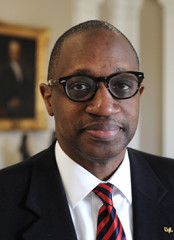
Powell's research focuses on constitutional law, rooted in Critical Race Theory. Overarching themes in Powell's writings include the ways in which neutrality reinforces oppression and subjugation in various areas of society. He is writing a book entitled, Post-Racial Constitutionalism and the Roberts Court (Cambridge University Press).
Quotes: "In California v. Texas, the Court, in a 7-2 ruling, held that plaintiffs lacked standing to challenge the Patient Protection and Affordable Care Act's minimum essential coverage provision. Since there is no longer a tax penalty for non-compliance for failure to enroll in a healthcare plan, there is no means of enforcement. "With the penalty zeroed out, the IRS can no longer seek a penalty from those who fail to comply." Thus, there is no injury that can be remedied--there is no standing. This jurisdictional ruling is not on the merits, so it may portend future challenges for Obamacare. This is the third time that the Court has upheld Obamacare against a constitutional challenge."
"In Fulton v. Philadelphia, the Court, in an unanimous ruling, held that the City of Philadelphia's refusal to contract with Catholic Social Services ("CSS") unless CSS agreed to certify same-sex couples as foster parents violated the Free Exercise Clause of the First Amendment. This decision will be one among many that will seek to reconcile religious freedom and substantive constitutional rights of the LGBTQ+ community. These political-cultural debates will be all the more intense with a 6-3 Conservative majority (and now that Justice Kennedy has retired from the Court, there is no conservative who is empathetic to these issues). Religious freedom will be the touchstone of these decisions."
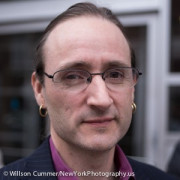
Keck's research focuses on freedom of speech, constitutional courts, and the use of legal strategies by political actors on the left and the right. He is the author of the book, Judicial Politics in Polarized Times.
